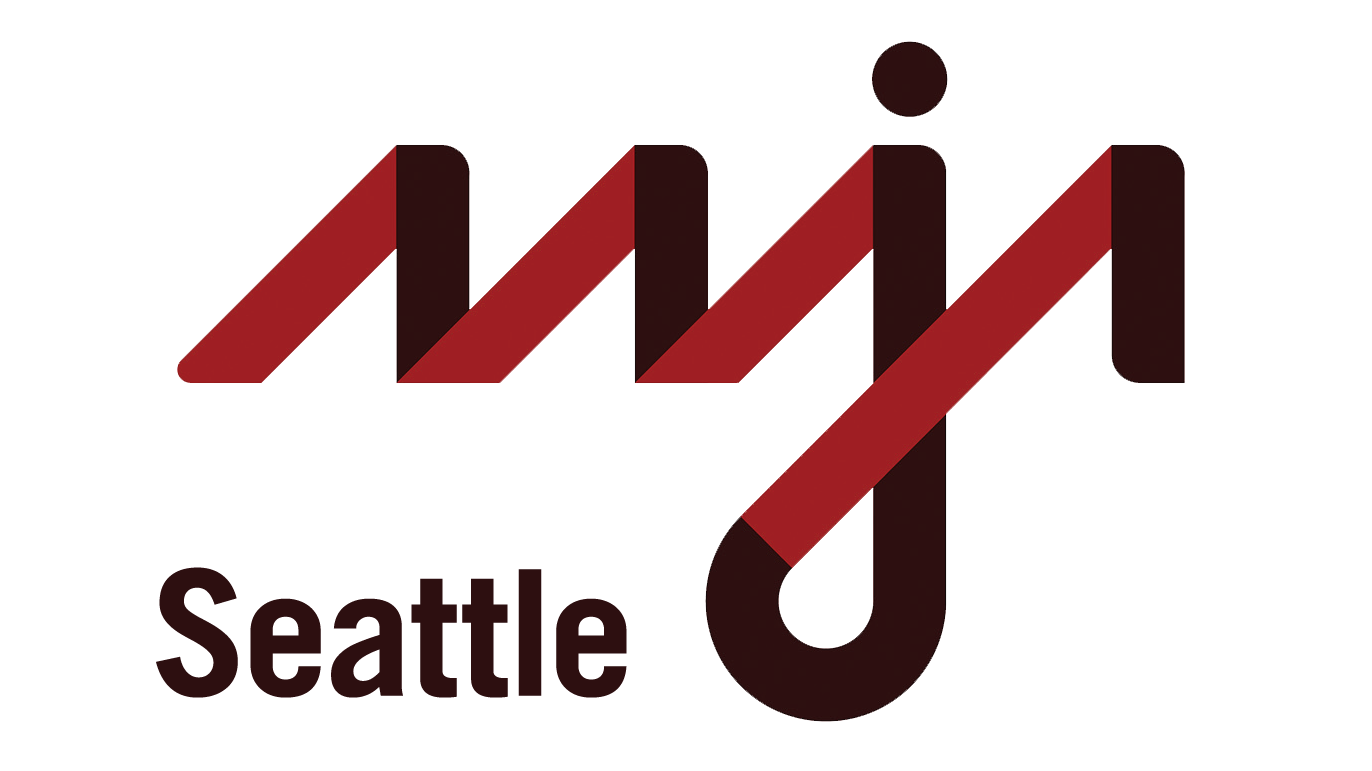Frank Blethen, Seattle Times Co. receive James Madison Award

Frank Blethen, publisher of The Seattle Times, accepted the James Madison Award on behalf of The Seattle Times Co. on Friday from the Washington Coalition for Open Government. WCOG gives the award annually to an individual or organization whose long-term commitment to the cause of open government has been demonstrated through exemplary words or deeds. Former winners include Denny Heck and Stan Marshburn, founders of TVW, and James Andersen, former chief justice of the state Supreme Court.
Blethen is a long-time supporter of diversity in newsrooms and the Northwest Journalists of Color scholarship. He is an AAJA Gold Member. AAJA members Sharon Chan, Candace Heckman, Judy Hsu and myself attended WCOG’s breakfast to show our support.
Here is the text of his speech:
I am honored to accept the James Madison Award for The Seattle Times and for our family of newspapers from Seattle to Issaquah, Yakima and Walla Walla.
As Seattle Times publisher, it has been my privilege to serve for three decades as the instrument of the Blethen family and of the wonderful journalists at The Times.
Good journalism, including the pursuit of all aspects of openness and transparency, is hard and often lonely work.
It’s time consuming.
It’s costly.
It engenders hostility and enmity from powerful individuals and organizations.
I know only too well that good ownership, like the Blethen family, pays a dear price – financially and personally – in the pursuit of mission.
When the powerful and wealthy are permitted to operate without scrutiny and without accountability we become a nation whose government and economy are run by secretive elites.
We become a nation of haves and have nots.
Once the majority of citizens no longer believe in the “American Dream” they have no vested interest in perpetuating the existing form of government or the existing form of the economy.
After 230 years, America’s self-government experiment is, in historical terms, on life support.
For many reasons these are dangerous days for our nation.
One of the root reasons is that we have lost our popular independent press.
60 years ago noted journalist Walter Lippman said:
“… there is, I believe, a fundamental reason why the
American press is strong enough to remain free. That
reason is that the American newspapers, large and small,
and without exception, belong to a town, a city, at the
most to a region.â€
“The secret of a truly free press is that it should consist of many newspapers decentralized in their ownership and their management, and dependent for their support upon the communities where they are
written, where they are edited and where they are read.â€
“There is safety in numbers, and in diversity, and in being
spread out, and in having deep roots in many places. Only in variety is there freedom.â€
Today, rather than preserve our nation’s system of independent newspapers providing robust localism and a wide variety of voices we have come under the control of monolithic corporate ownership.
For the most part, they have turned our Watchdog into their Lapdog, leaving us in a dangerous vacuum of too many untold stories, too little scrutiny, and too little transparency.
Quite literally, our newspapers and broadcast houses, our phones, our cable, our satellite dishes and the Internet have been co-opted by a handful of powerful financial mercenaries.
Despite the proliferation of new communication and social tools, almost all the substantive news and information necessary for self-government and community originates in our newspaper newsrooms.
And despite the “myths” out there, the newspaper business is viable and profitable with virtually all newspapers making money, even in the middle of this terrible economic RESET.
Indeed, readership is strong and it’s the place the public values the content enough to pay for it – to the tune of $10 billion a year.
We do not have a readership or business model problem – what we have is an ownership and control problem.
Few realize that 80% of newspaper revenue is now controlled by a handful of financially-driven corporations.
Or, that 75% of all internet advertising is now controlled by only four companies.
Here in Washington State there are only four local daily newspaper owners left.
The Seattle Times, which is now the second largest newspaper on the West Coast, is one of only four privately owned, local metropolitan newspapers left in the country’s top 50 markets.
And, if the current dominant ownership class and their control scare you, consider the near future; the emerging new dominant newspaper and broadcast owners are the very banks and venture capitalists which put us into today’s economic crisis.
How does this happen?
With the reckless lending and borrowing which enabled the creation of newspaper chains and media conglomerates. As these borrowers turn to bankruptcy restructuring because they can’t handle the crushing corporate debt, despite profitable newspapers and TV stations, the banks and venture capitalists are fast replacing them as the new owners.
Not a good trend for watchdog journalism.
In this troubling ownership environment, WCOG and its pursuit of openness and transparency have never been more important.
Because of the economy and forced cutbacks the newsrooms around Washington State are not providing the breadth of coverage required for government accountability. Nowhere is this more apparent than in Olympia. But at least, with your help, we, the press, and citizen activists can seek to uncover the most egregious secrets, the best examples of power abuse in our never-ending effort to hold state and local government accountable.
Some days I feel like Don Quixote tilling at windmills. Then there are mornings like this when I am reminded how critical our work is and of the wonderful citizen patriots in our community. Knowing you are there and you care is very energizing to me and the Times family.
Personal Reflection
I’d like to close with a few moments of personal reflection about my watchdog journey –
The bookends for my journey are Cam Devore and the WEA.
The first bookend, involving Cam, was in 1976 as the 31-year old publisher of the Walla Walla Union-Bulletin. I found myself in court testifying against the respected school superintendent for an egregious violation of the Open Meetings Act. Thanks to Davis Wright Tremaine attorney Cam DeVore and Seattle Times Managing Editor Henry MacLeod I was given the education and support I needed to pursue this violation. It had a good outcome and set the stage for my career-long passion of pursuing open meetings and public records.
More recently the other bookend involving the WEA was in 2003 when we spent about a half-million dollars pursuing records and defending ourselves from some of our most respected school districts and the WEA.
The investigative series involved was “Coaches Who Prey” – one of the proudest journalistic/community-service moments of my career.
Years earlier I had learned that one of our community’s dirty, hidden secrets was the way school districts quietly passed on sexual predators to prey on kids at the next school down the line.
For years I struggled to understand this – how otherwise intelligent, moral educators could place their public image and fear of the WEA ahead of the health and safety of their students. And I don’t even want to get started on the WEA, whose actions suggest they would rather protect perverts and chill news coverage than protect students.
I understand it now.
Without openness, transparency and accountability, otherwise principled and moral people can succumb to illegal and immoral behavior.
Cam and Henry taught me how to do the right thing. The WEA and our school bureaucracies taught me why we can never stop being vigilant in our pursuit of openness.
There are many people from The Times and Blethen family that deserve recognition for this award.
My cousins, Will, Bob and John, who have been unfailing in their absolute support and passion around good journalism and openness for three decades.
My open meetings and public records mentors: starting with Henry MacLeod and Cam Devore. Followed by Mike Fancher, Alex MacLeod and Dave Boardman.
A special thank-you to the Seattle Times Board of Directors, who have been unwavering in their support of our journalistic mission. One of them is here today, Rick Holley, CEO of Plumb Creek.
As to the future, with leaders like Ryan Blethen, Dave Boardman, and Mike Shepard, I have no doubt The Times and its affiliate newspapers will remain on the leading edge of openness and transparency.
Thank you for validating what we do and empowering us to stay at it.



